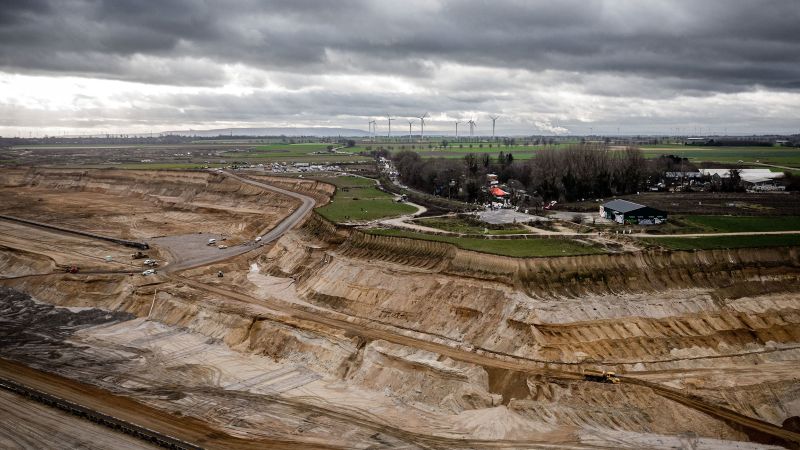CNN
—
It’s a stark image in 2023: Police in riot gear flooding a village, pulling people out of houses and tearing down structures to make way for the arrival of excavating machines to access the rich seam of coal beneath the ground.
Since Wednesday, as rain and winds lashed the tiny west German village of Lützerath, police have removed hundreds of activists. Some have been in Lützerath for more than two years, occupying the homes abandoned by former residents after they were evicted, most by 2017, to make way for the mine.
More than 1,000 police officers are involved in the eviction operation. Most of the buildings have now been cleared, but some activists remained in treehouses or huddled in a hole dug into the ground as of Friday, according to Aachen city police.
Protest organizers expect thousands more people to pour into the area on Saturday to demonstrate against its destruction, though they ultimately may not be able to access the village. After the eviction is complete, RWE plans to complete a 1.5-kilometer perimeter fence to snake around Lützerath, sealing off the village’s buildings, streets and sewers before they are demolished.
Still, activists vow to continue to fight for the village.
“We are taking action against this destruction by putting our bodies in the way of the excavator,” said Ronni Zeppelin, from campaign group Lützerath Lebt (Lützerath Lives).
Lützerath, about 20 miles west of Dusseldorf, has long been a climate flashpoint in Germany because of its position on the edge of the open-cast lignite coal mine, Garzweiler II.
The mine sprawls across around 14 square miles (35 square kilometers) in North Rhine Westphalia (NRW) – a huge, jagged gouge in the landscape.
Its slow creep outwards over the years has already swallowed villages where families have lived for generations. It has prompted the destruction of centuries-old buildings and even a wind farm.
RWE has long planned to expand the mine further, in the face of criticism from climate groups. Lignite is the most polluting form of coal, which itself is the most polluting fossil fuel.
As far back as 2013, the German courts ruled the company was able to expand, even at the expense of nearby villages.
Following the Greens’ successes in the 2021 federal elections, some hoped the expansion would be canceled, said David Dresen, part of the climate group Aller Dörfer bleiben (All Villages Stay), who lives in Kuckum, a village that had been slated for destruction.
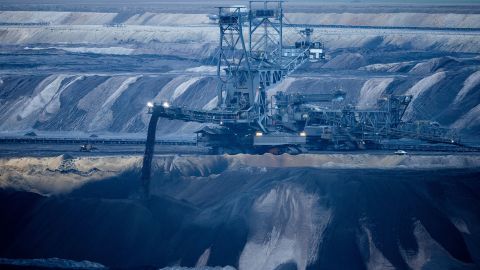
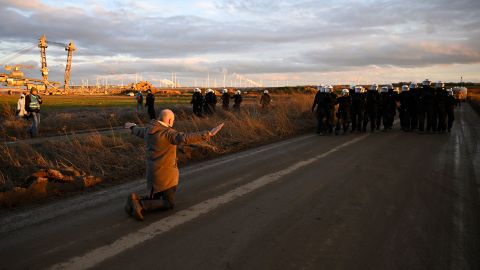
But in October 2022, the government struck a deal with RWE that saved several villages – including Kuckum – but allowed Lützerath to be demolished to give RWE access to the coal beneath it.
In return, RWE agreed to bring forward its coal phase-out from 2038 to 2030.
The Greens pitch it as a win.
“We were able to save five villages and three farms from being destroyed, spare 500 people a forced resettlement and bring forward the coal phase-out by eight years,” Martin Lechtape, a spokesperson for the North Rhine Westphalia Green Party, said in an email to CNN.
The Greens and RWE also say the expansion will help relieve the energy crisis caused by the war in Ukraine, which has curtailed gas supplies.
It “is not a renaissance of lignite or coal, but only a side-step – helping Germany to cope with the energy crisis,” RWE spokesperson Guido Steffen, told CNN in an email.
Climate groups fiercely oppose the deal. Continuing to burn coal for energy will belch out planet-warming emissions and violate the Paris Climate Agreement’s ambition to limit global temperature rise to 1.5 degrees Celsius above pre-industrial levels.
RWE and the Greens both reject the claim the mine expansion will increase overall emissions, saying European caps mean extra carbon emissions can be offset.
Many feel betrayed by the Green Party, including people who voted for them.
“It’s such an absurd and catastrophic scenario that Germany, the country where everyone else thinks we have green [policies], is destroying a village to burn coal in the middle of the climate crisis,” said Dresen, who has voted Green in recent elections.
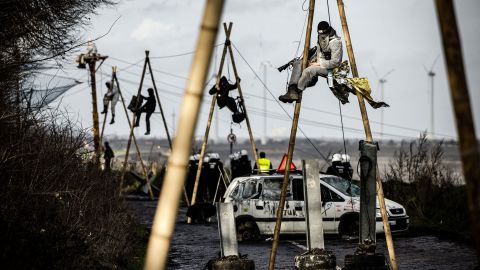
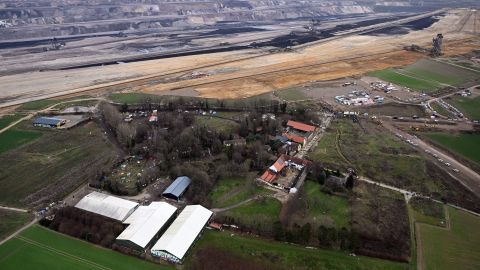
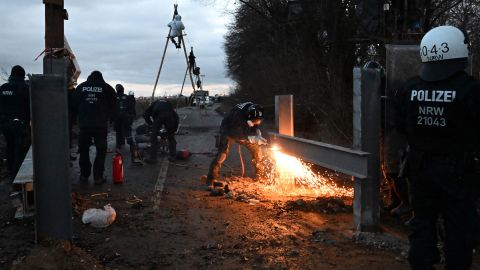
Fabian Huebner, campaigner on energy and coal at Europe Beyond Coal, said: “I think the Greens, faced by very difficult decisions, took the wrong turn and de-prioritized climate policy.”
Germany should accelerate the clean-energy transition instead, he added, including a faster roll out of renewables and energy efficiency measures: “You can’t solve the crisis with the energy source that basically created this crisis.”
Some studies suggest Germany may not even need the extra coal. An August report by international research platform Coal Transitions found that even if coal plants operate at very high capacity until the end of this decade, they already have more coal available than needed from existing supplies.
It’s a deeply uncomfortable moment for the Greens and an unfathomable catastrophe for those who want to save the village.
“The pictures from Lützerath are of course painful, as we have always fought against the continued burning of coal,” said Lechtape, on behalf of the NRW Greens. “We know the importance of Lützerath as a symbol in the climate movement. However, this should not obscure what has been achieved,” he added.
The party’s discomfort may deepen on Saturday when a protest, organized by a coalition of climate groups, is expected to draw thousands of people to Lützerath – including Swedish climate activist, Greta Thunberg.
“It is now up to us to stop the wrecking balls and coal excavators. We will not make this eviction easy,” said Pauline Brünger from the climate group Fridays for Future.
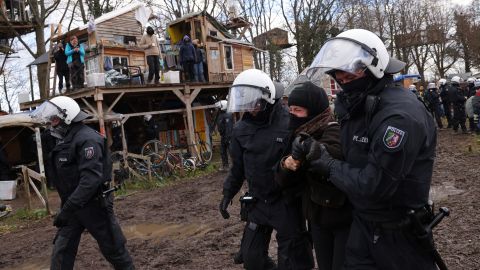
Even if the village is completely evicted before Saturday and access is blocked off, climate groups say the protest will still go ahead.
Dina Hamid, a recently evicted activist with Lützerath Lebt, told CNN, “in the end, it’s not about the village, it’s about the coal staying in the ground and we’re going to fight for that as long as it takes.”

